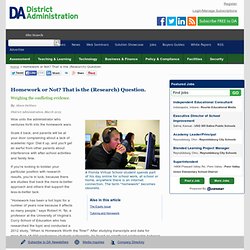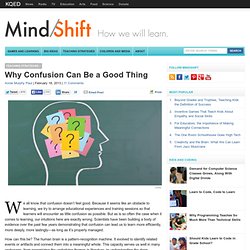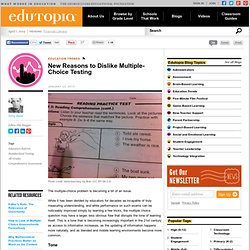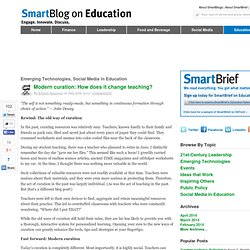

10 Things We Can Learn From Street Artists. Homework or Not? That is the (Research) Question. Woe unto the administrator who ventures forth into the homework wars.

Scale it back, and parents will be at your door complaining about a lack of academic rigor. Dial it up, and you’ll get an earful from other parents about interference with after-school activities and family time. If you’re looking to bolster your particular position with research results, you’re in luck, because there are studies that back the more-is-better approach and others that support the less-is-better tack.
“Homework has been a hot topic for a number of years now because it affects so many people,” says Robert H. Tai, a professor at the University of Virginia’s Curry School of Education who has researched the topic and conducted a 2012 study, “When Is Homework Worth the Time?” In Favor of Homework A 2004 national survey conducted by the University of Michigan found that the amount of time spent on homework had risen 51 percent since 1981. The Case for Less International Debate Nontraditional Models. Why Confusion Can Be a Good Thing. Teaching Strategies Getty We all know that confusion doesn’t feel good.

Because it seems like an obstacle to learning, we try to arrange educational experiences and training sessions so that learners will encounter as little confusion as possible. But as is so often the case when it comes to learning, our intuitions here are exactly wrong. Scientists have been building a body of evidence over the past few years demonstrating that confusion can lead us to learn more efficiently, more deeply, more lastingly—as long as it’s properly managed. How can this be? We short-circuit this process of subconscious learning, however, when we rush in too soon with an answer. Here, three ways that researchers have deliberately induced confusion, and how you can adapt them to your own learning: 1. 2. 3. Related. New Reasons to Dislike Multiple-Choice Testing. The multiple-choice problem is becoming a bit of an issue.

While it has been derided by educators for decades as incapable of truly measuring understanding, and while performance on such exams can be noticeably improved simply by learning a few tricks, the multiple choice question may have a larger, less obvious flaw that disrupts the tone of learning itself. This is a tone that is becoming increasingly important in the 21st century as access to information increases, as the updating of information happens more naturally, and as blended and mobile learning environments become more common. Tone Learning depends on a rather eccentric mix of procedural and declarative knowledge -- on the process as much as the end product. Students are often as confused by teacher instructions or activity workflow as they are by the content itself. Rick Wormeli: Redos, Retakes, and Do-Overs, Part One.
Rick Wormeli: Redos, Retakes, and Do-Overs, Part Two. Deadlines and Creativity. What Is College and Career Readiness in Science? - Curriculum Matters. Education Reform Key: Stop Enabling Students' Self-Defeating Behavior - Coach G's Teaching Tips. What schools need: Vigor instead of rigor - The Answer Sheet. This was written by Joanne Yatvin, a veteran public school educator, author and past president of the National Council of Teachers of English.

She is now teaching part-time at Portland State University. A version of this was originally published in the Atlanta Journal Constitution. By Joanne Yatvin Though my years in the classroom are long past, at heart I am still a cranky old English teacher who bristles at some of the neologisms that have crept into public language. I never tack “ly” onto ordinal number words, or say “myself” when I mean “I” or “me.” Even so, I remain politely quiet when others commit such grammatical transgressions. Part of my reaction is emotional, having so often heard “rigor” paired with “mortis.” Now, more than ever, “rigor” is being used to promote the idea that American students need advanced course work, complex texts, stricter grading, and longer school days and years in order to be ready for college or the workplace. Modern curation: How does it change teaching? SmartBlogs. “The self is not something ready-made, but something in continuous formation through choice of action.” — John Dewey Rewind: The old way of curation In the past, curating resources was relatively easy.

Teachers, known fondly to their family and friends as pack rats, filed and saved just about every piece of paper they could find. They crammed worksheets and memos into color-coded files near the back of the classroom. During my student teaching, there was a teacher who planned to retire in June. Such collections of valuable resources were not readily available at that time. Teachers were left to their own devices to find, aggregate and retain meaningful resources about their practice.
While the old ways of curation still hold their value, they are far less likely to provide you with a thorough, interactive system for personalized learning. Fast forward: Modern curation Today’s curation is completely different. What does modern curation mean for teaching? 21 Things That Will Be Obsolete by 2020.